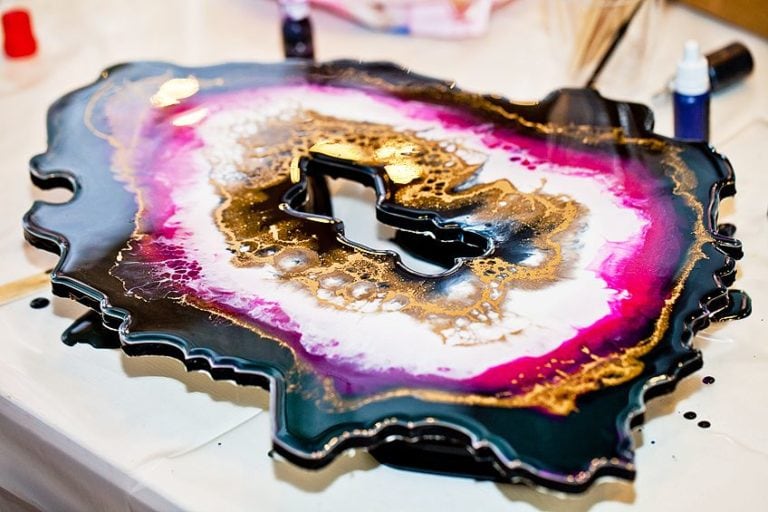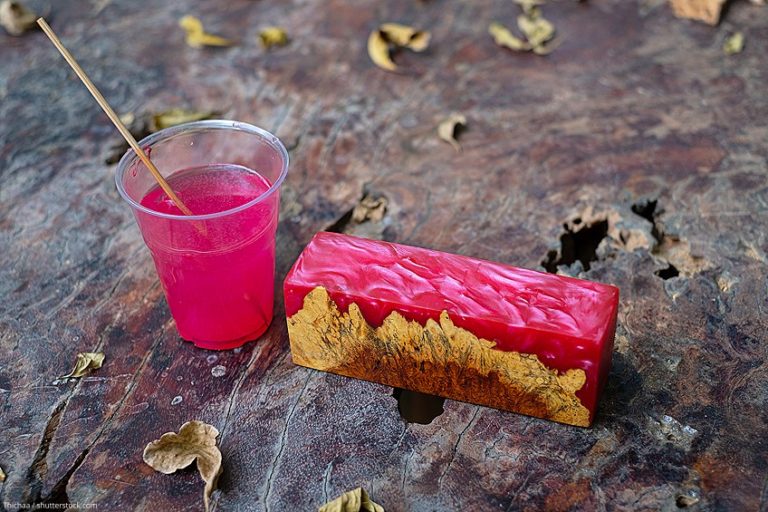Best Polyurethane Resin – Selecting a Clear Polyurethane Resin
This post may contain affiliate links. We may earn a small commission from purchases made through them, at no additional cost to you.
If you plan on working with resin, you will be amazed by just how many different resin varieties are available. Each different type has its own strengths and weaknesses, including polyurethane casting resin. We have created a complete guide on polyurethane resin below, exploring the different properties of polyurethane cast resin and things to consider when buying this type of resin.
Table of Contents
What is Polyurethane Resin?
Polyurethane (poly) is a kind of synthetic plastic or resin. This kind of resin has many different properties that change between applications, allowing it to be used for a wide range of purposes. Polyurethane produces thermoplastics, thermosets, and elastomers amongst other things.
Polyurethane cast resin involves two separate parts that need to be mixed. These are the resin and the hardener. These are mixed together to create an effective casting resin through a chemical reaction. Just like with other types of resin, polyurethane resins can be enhanced further by combining different additives, colors, pigments, or filling materials. An example of this includes adding an inhibitor which will increase the pot life of the poly resin, making it more suitable for certain applications.
Polyurethane cast resin is clear, but it can be mixed with dyes and color pigments in order to achieve a colored resin. You can also use fillers like glass fibers, mineral fillers, or cotton flocks to change the strength and surface properties of the cured resin.
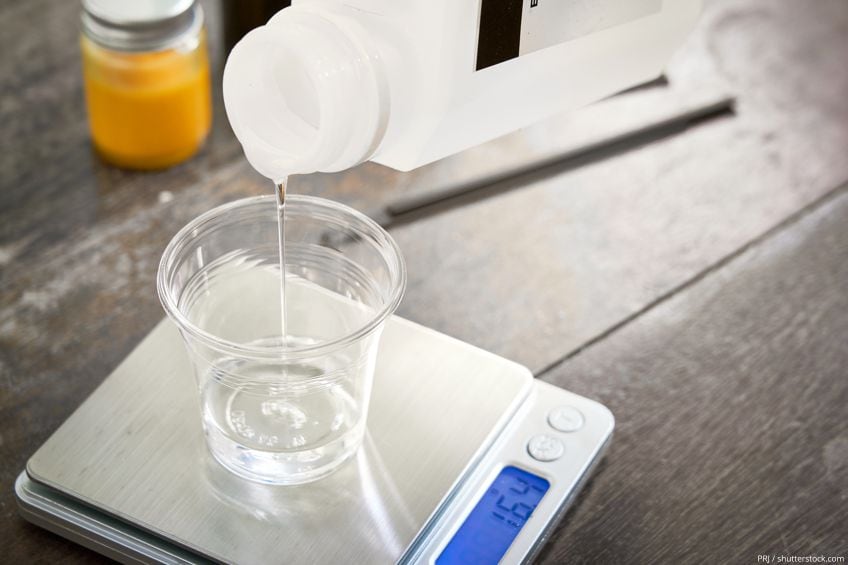
Advantages and Disadadvantages of Polyurethane Resin
Polyurethane resin is a great material to work with, and it has a wide range of benefits. When looking for a resin to use, you need to make sure that it is suitable and that it matches the specific requirements of your project.
Pros
- Great flow properties with a reasonably low viscosity
- Can be processed and mixed easily
- Quick to harden
- Great filling capacity
- Can be used for small, thin models with high stability
- Works well as an electrical encapsulant
- Mixable with a wide range of additives
- Minimal shrinkage occurs when curing
- High heat-resistance
Cons
- Very sensitive to moisture and can foam
- Needs additives for UV-resistance
- Not weldable after curing
- Strong fumes are produced while still liquid
- Not as adhesive as epoxy resin
Fast-casting resins refer to poly resins that need a fast processing time and can be unmolded quickly. Working with these resins requires a strong focus on their pot life as they can harden very quickly. This is both a strength and a weakness, as the resin can be tricky to work with but it is also quick to unmold.
Different polyurethane resins also have varying levels of hardness, making them suitable for different projects. The level of hardness is referred to as Shore hardness. Softer resins are labeled as Shore hardness A and have a consistency similar to rubber. Shore hardness D refers to harder materials after curing.
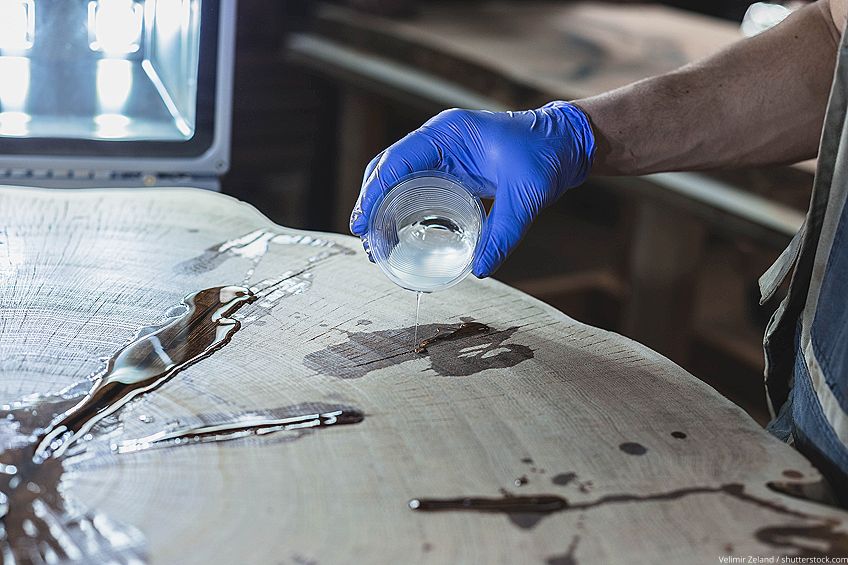
Best Polyurethane Resin
Looking for the best polyurethane resin product? We have selected a few top product picks below covering different categories.
Best Resin for Floors: VARATHANE Ultimate Polyurethane
This water-based polyurethane resin by Varathane is specially designed to protect indoor wood surfaces. This makes it a good choice for windows, furniture, trim, and cabinets, but of course it is also an excellent product for use on flooring.
- Water-based formula that dries fast and cleans up easily
- Gloss finish creates a polished and clean look
- The best scratch and stain protection available
The formula is scratch-resistant and highy durable. It is also resistant to stains. This resin dries to a clear glossy finish, and maintains a great clean, polished look. The formula is quite easy to work with as it is water-based. This allows you to clean it up easily with water and soap when still wet. The resin dries to touch in 30 minutes, and can cover an area of 125 square feet.
Pros
- Scratch and stain-resistant
- Very efficient drying time
- High quality gloss clarity
- Water-based for more convenience
- No odor
Cons
- Does not offer great UV protection, making it best suited for indoor use
Best Polyurethane Casting Resin: SPECIALITY RESIN & CHEMICAL Model-Pro Polyurethane Casting Resin
This is a two-component resin that is specially produced for casting and model making. This polyurethane casting resin is impact-resistant and has a high strength. When mixed, the resin has a low viscosity (perfect for pouring molds) and contains no solvents.
- A two-component polyurethane casting resin
- High strength and impact-resistance
- Low viscosity and no solvents
This is a versatile casting resin with a fast working time of 2.5 minutes and a 15-minute demold time. The two-part kit mixes to a full gallon of resin, and the solution is virtually odorless. As this is a paintable resin, enamel and other paints can easily adhere to it. For hobbyists or professionals, this resin is always a favorite choice for castings.
Pros
- High strength and impact-resistance
- Low viscosity and solvent-free
- Fast working and demolding times
- Can be used with a wide range of materials
Cons
- Quite a brittle resin once hardened
Best Clear Gloss Polyurethane Spray: MINWAX Aerosol
Polyurethane is also available in an aerosol format, of which Minwax offers a fantastic product. The resin is super fast-drying and easy to apply. Even though it is sprayed from an aerosol can, you get an incredibly durable coat.
- Hardest of protective coatings
- Easy to apply and fast-drying
- Long-lasting, durable finish
The resin dries to a glossy finish for superior protection. It works well on a variety of surfaces, and offers the most convenient format for applying polyurethane resin.
Pros
- Very convenient to use
- Dries to a durable finish
- Clear and glossy
- Very fast drying time
- Offers long-lasting protection
Cons
- Some people prefer to add thicker coats of resin
- Not suitable for pouring or casting
Areas of Application for Polyurethane Resin
Polyurethane casting resin is incredibly diverse and can be used for many different DIY or industrial purposes. As an example of its variety, you can use poly resin to create foams, paints, coatings, adhesives, electrical protective capsules, and more.
When poly resin is used to create foam, it needs to come into contact with water. Otherwise, polyurethane casting resin can only be used on dry surfaces in order to maintain its desirable properties.
Polyurethane Floor Coatings
One of the more popular applications of polyurethane resin is that of floor coatings. This casting resin is often used in industrial settings like car workshops, as the poly resin coating can protect the underlying floor from high loads while still looking great. It is also resistant to abrasion, is flexible, and is able to handle high thermal and mechanical loads. On top of this, the resin is fairly easy to use with flooring and is quite cost-effective.
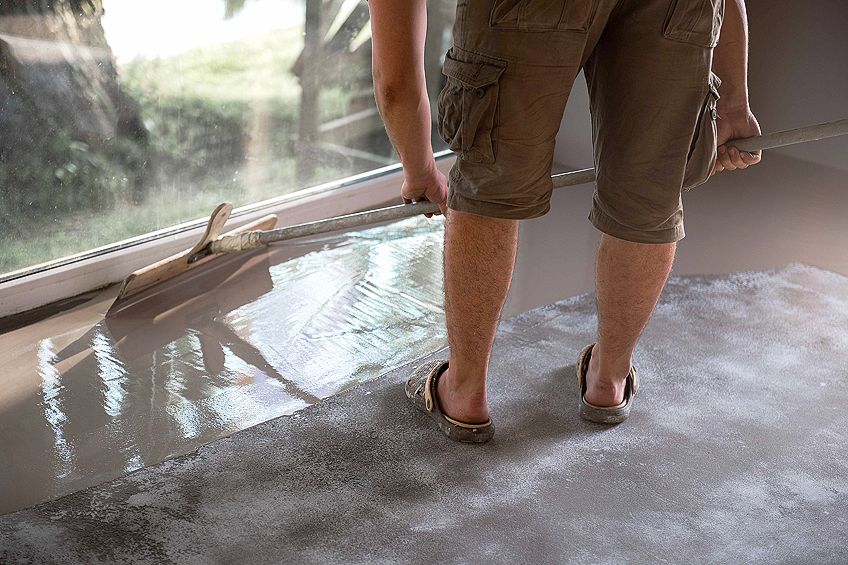
Polyurethane coatings are often preferred in outdoor settings, as the resin does not yellow as easily as epoxy resin. It has better UV-resistance and can withstand temperature changes better. As a floor coating, this resin also provides a surface that can help to prevent slipping and accidents. This resin is even used on flat roofs due to its durability and UV resistance.
Using Polyurethane Resin for Mold Casting
Polyurethane resin is a great material for casting molds. In this case, the two parts of the resin need to be mixed together and then poured into a mold. This is an ideal material for mold casting as it dries quickly and has a low viscosity, which means that is of a thin consistency and is easier to pour. When casting with poly resin, there are some important considerations to keep in mind:
- Be sure to add a release agent to the mold first. This will allow you to take the resin out of the mold without it sticking.
- When using elastic polyurethanes, the master model could get damaged due to the high curing temperatures.
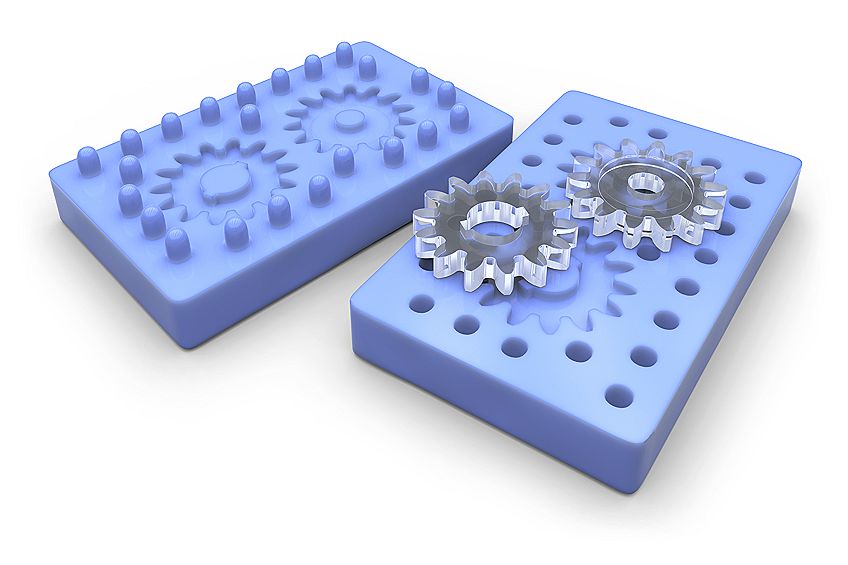
Some common uses for casting polyurethane resin include:
- Electronic components and capsules;
- Restoring monuments and buildings;
- Wrapping perishable items in transparent sealing;
- Glazing and coating different objects;
- Model making; and
- Potting open contact points on cables.
Polyurethane mold castings can be enjoyed in industrial environments as well as DIY projects. Just make sure that the resin is properly mixed, and carefully handled. Otherwise, an air bubble can form. A good way to avoid air bubbles is to fill the mold from below instead of pouring from above.
How to Process Poly Casting Resin
There are a couple of different ways to process polyurethane resin, each one depending on the specific use that you will require from the resin. The step-by-step guide below assumes that resin will be used as a floor coating over concrete or a mold casting.
- Firstly, make sure that all necessary pieces of equipment and materials are prepared. As soon as the two parts of the resin have been mixed, time becomes limited, so it is important to be prepared. If you plan on working over a large surface or need large amounts of resin, consider using an inhibitor to allow for a longer working time.
- If you are using the resin for flooring, make sure that the entire floor surface is properly cleaned and free from any dust, grease, or dirt. The floor also needs to be level and without any visible cracks. Make sure that the floor is also completely dry before adding any resin.
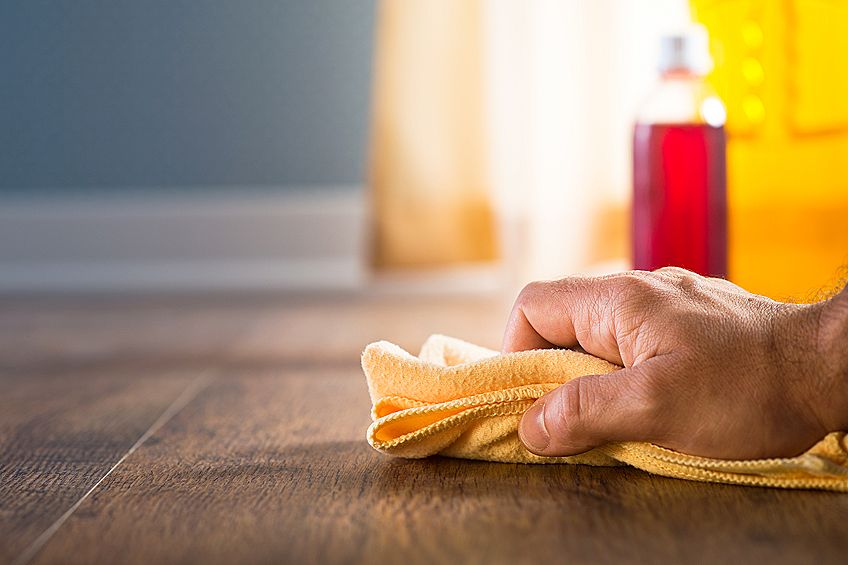
- You should then apply a suitable primer that will work with your poly resin. This should be a two-component primer without any solvents.
- The next step is mixing the polyurethane resin. Make sure to get the right ratio and consistency. Stir the resin thoroughly, and stir the resin around a few times to make sure that it is well-mixed.
- Once ready, the casting resin can be poured into the molds or applied to the floor. If you are doing a mold casting, be sure to apply a release agent to the mold first in order to get the cast resin out without any issues.
- Once everything has been poured and applied, it will be time to set the resin. The curing time depends on a number of factors: the type of resin used, the air temperature, the size of the project, and so on. You can get cold-curing and hot-curing resins.
Once polyurethane resin has been cured, it cannot be reshaped. For this reason, it is important to make sure that the resin has been applied carefully. With large resin casts, there is also the issue of shrinkage.
- While the resin is curing, heat is also released from the process. This heat needs to be properly dissipated so as to avoid the temperatures rising any further, which would result in the curing process being extended.
- Once the resin is cured, it can be processed, primed, painted, and cleaned. If the resin is being used outdoors, adding a UV-protective coat is recommended.
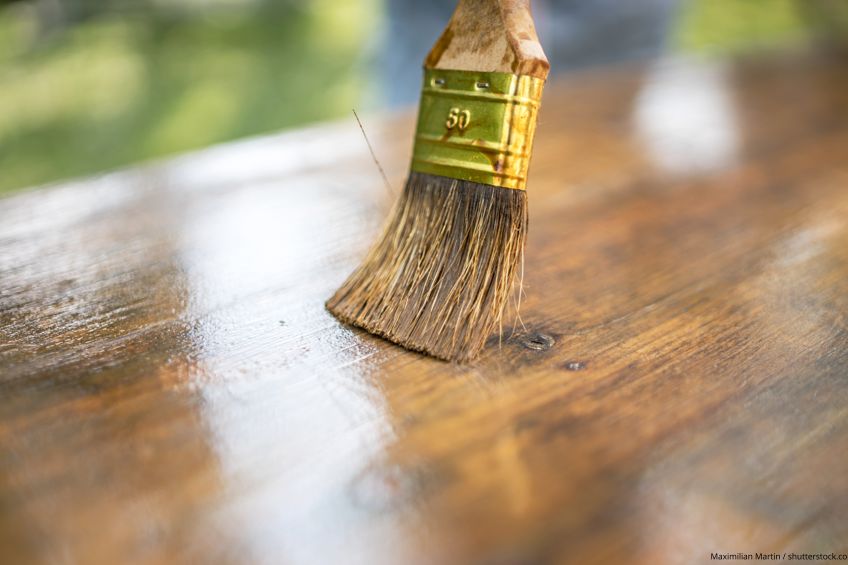
Storing Poly Casting Resins
You neeed to store polyurethane casting resin at the right temperature, which ideally should be 59 to 77 degrees Fahrenheit, without any big fluctuations. The storage container needs to be properly airtight and moisture-proof.
When the containers are opened, the resin should be processed and used as quickly as possible – avoiding prolonged exposure to the outside air. If any crystallization occurs during storage, you can slowly warm the resin back up to get rid of this. If you do this, make sure to cool the resin back down before using it.
Safety Considerations for Processing Polyurethane Resin
- Resin that has not yet reacted contains isocyanates. These are allergenic and could cause cancer. The risk of exposure to isocyanates is only present before the resin has cured, So, make sure to exercise caution when working with liquid polyurethane resin.
- There are also some additives to poly resin, such as flame retardants or plasticizers, that can offer a potential health risk.
- When working with poly resin, be sure to wear a respirator mask, gloves, and long-sleeved clothing. Also, make sure that the working area is well ventilated, and that the instructions provided by the manufacturer are correctly followed.
- When working with polyurethane resin, there should never be any open fires near the work area. If the resin comes into contact with your eyes, make sure that you properly rinse them.
Polyurethane is a versatile and incredibly useful material for both industrial use and DIY projects. Whether you are using it for kitchen countertops, a floor coating, or casting molds, we hope that the extensive guide above has provided all of the information you need to get started.
Frequently Asked Questions
What is Polyurethane?
Polyurethane is a common type of plastic that can be used in many different ways. It is made from a special reaction that creates heat. Polyurethane is easy to work with and can be used both industrially and domestically for various DIY projects.
Can Polyurethane Be Used for Kitchen Counters?
Polyurethane is both food-safe and durable, making it a good choice for kitchen countertops. This material can be used over a wide range of surfaces and is safe for kitchen counters once properly cured.
Is Polyurethane Food Safe?
Once polyurethane is fully cured it becomes completely food safe. This includes polyurethane varnish. However, the curing process can take about 30 days before the surface is properly safe to use.
Can You Coat Polyurethane Over Resin?
Clear polyurethane resin can be combined over epoxy for a great effect. A couple of coats of epoxy will provide a stable base for a polyurethane finish, which will help with durability.
Can Polyurethane be Removed with Vinegar?
Vinegar can soften polyurethane, even when it is highly diluted. If you constantly apply vinegar to a polyurethane finish, it will start to ruin it, and make it more prone to scratches and water damage.
What Type of Polyurethane Should be Used for Counters?
Specialized clear polyurethane resin can be used for woodwork, countertops, and any other similar uses. Just make sure that the surface is dry propery before applying the polyurethane. Poly resin for floors is a bit more durable and scratch-resistant.
Larissa Meyer is a 32-year-old mother from Michigan and creative spirit since childhood. Her passion for painting and drawing has led her to an education as an illustrator and a career as a freelance graphic designer. She has a Bachelor of Fine Arts in Illustration and a degree in Graphic Design. Larissa is a talented artist who is able to master a wide range of styles and techniques to bring her artistic vision to life. Her greatest passion is currently fluid painting and epoxy resin art. Larissa’s love for art and her knowledge and experience in illustration make her the perfect Creative Director for our fluid-painting.com team. She is the creative head of our team and shares her passion and knowledge with our community through articles and tutorials.
As a mother of a 2-year-old daughter, Larissa also understands the importance of fostering creativity in early childhood. She uses her experience and knowledge to help other parents inspire their children and develop their artistic skills as well.
Learn more about Larissa Meyer and about us.








